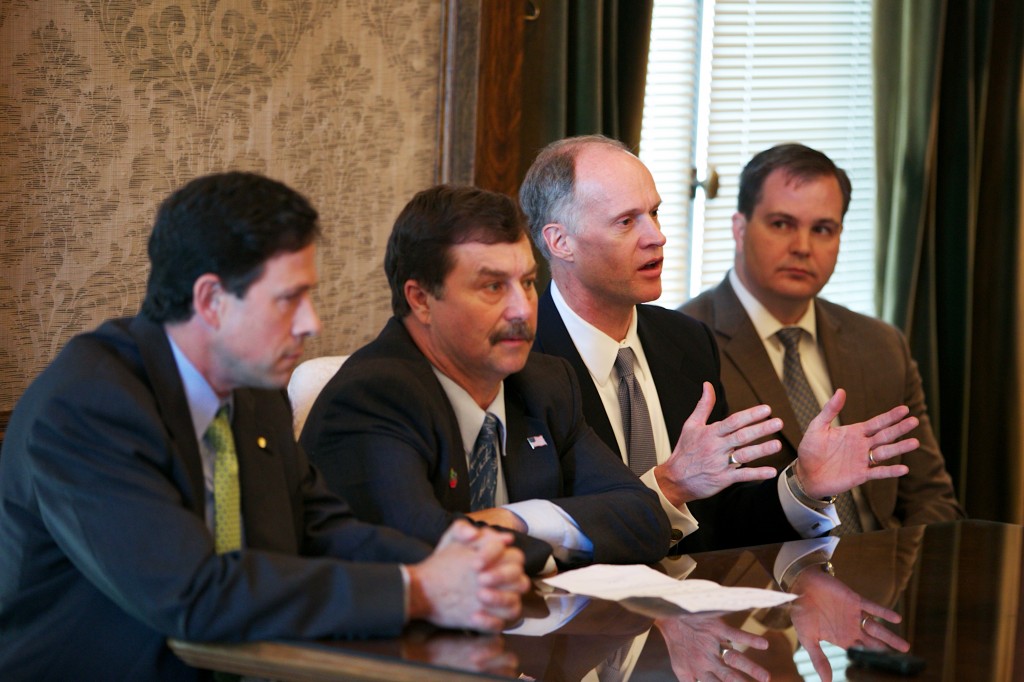The Senate today passed a new budget that its leaders say should help bring about the consensus necessary for the Legislature to complete its work.
“Once again, the Senate has worked hard to put together and pass a sustainable budget that adheres to our constitutional and moral duty to provide for the education of our children,” said Senate Majority Leader Rodney Tom. “Education should get our first dollars, not our last dime.”
Senate Republican Leader Mark Schoesler agreed.
“Over the past 30 years the rate of non-education spending has grown almost twice as much as the dollars for education,” said Schoesler, R-Ritzville. “When forced to ‘do a hard thing’ the House majority prioritized growing government over students and schools, with over 75 percent of its spending reductions coming from education. That is unacceptable.
“The budget we passed today is an education budget — it invests more in education than the House, and doesn’t make education funding subject to tax increases.”
The Senate budget allocates $33.4 billion for the next biennium, which begins July 1. It represents significant movement toward a compromise with the House by addressing that chamber’s biggest concerns with the Senate’s regular-session budget:
- Some spending assumptions have been removed; and a resource option is included.
- It addresses major long-term state liabilities– responding to a court ruling about the state estate tax and a concern about telecommunication parity — and converts an out-of-state sales-tax exemption to a refund program.
- New funding would go towards non-education areas, rather than holding education hostage as the House budget does.
The budget, which received a 25-23 vote, includes $1.5 billion more for K-12, with $1 billion going directly to basic education.
Tom pointed out that the Senate Majority Coalition also made a significant step forward by putting additional resources on the table.
“People forget that the state is already expected to take in nearly two billion dollars more in the next biennium due to growth,” said Tom, D-Bellevue. “In addition to that, we are prepared to take votes on additional modest increases in resources, which would be used on services for adults, but that depends in part on whether the House and governor can get behind some of the key reforms.
“Business as usual just won’t cut it.”
Schoesler added, “As families and family-run businesses know, you pay your most important bills first. For the Legislature, that means funding education with the dollars the state already has; if you choose to make support for schools contingent on tax increases, what does that say about your priorities?”
“As the state Supreme Court pointed out in its McCleary decision from 2012, providing for basic education is our paramount duty above all other government functions,” said Tom. “Our children’s education shouldn’t be held hostage to tax bills that may or may not have the votes to pass, just so that other areas of government can grow.”











